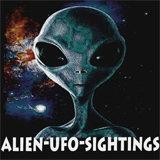Alien Base: The Evidence for Extraterrestrial Colonization of Earth: ANGELIC ALIENS
It was about 16.45 on 21 October 1954, a beautiful, if cold and frosty day. Jessie Roestenburg’s husband Anthony was at work for the Staffordshire County Education Department, her two sons were still at school, and she was at home at Vicarage Farm Cottage in Ranton, Staffordshire, with her little girl and the dog. ‘I took my little girl out for a walk, as usual,’ Jessie recalled. ‘I had to light the fire so I could make the evening meal. (We had no running water or electricity and it was hard going.) I started to get washed and changed in the outhouse, when I heard this noise — a sort of hiss like when a black- smith puts hot iron into water but much louder . . . I thought it was a plane crashing.’
I was worried because the boys hadn’t got home from school as they should have done by then. I went out to see what was happening and to my amazement they were lying flat out on the ground. They shouted to me: ‘Mummy, there’s a flying saucer!’ I said what any mother would say: ‘Don’t be silly!’ But they were as white as sheets so I could see there was something wrong.
Then I found I wasn’t in control of myself. I walked up to the water pump in the garden and turned round, but it was as though somebody else was making me do it. I wanted to look at the boys and ask them if they were all right, but I couldn’t. Then I saw, suspended in the air, a massive disc — bright silver and shaped like a Mexican hat. In the middle was a tubular light going round very slowly. It had a dome, like glass, and inside it were two beings looking down at us. They were the most beautiful people I have seen, but they weren’t human.
Their foreheads were large in proportion to the rest of their faces and they had long golden hair. I could only see them from the chest upwards, and they were wearing what looked like vivid blue polo-neck jumpers and what looked like fish bowls over their heads.
The craft was hovering at a tilted angle. Jessie Roestenburg recalls that although the figures looked like women, she felt sure they were men. They gazed down at the witnesses with a seemingly stern, though compassionate expression. ‘I couldn’t move. I was absolutely paralysed. I wasn’t frightened at that stage but I was mesmerized. It seemed to last for ages but it could only be for a few minutes. I felt all the tension go from me and I felt a sense of peace I have never felt since.’
I asked the boys if they had seen the same thing and they said yes. We ran into the field to see if we could still see it and I thought it had gone but one of the boys said: ‘Look, there it is.’ It circled the cottage and then shot up vertically and disappeared. By now we were scared to death. We went into the cottage where I locked all the doors and hid under the table until my husband came home.
When Tony Roestenburg arrived home, Jessie told him what had happened. ‘I could see he didn’t believe me. He questioned the boys separately and decided to report it to the police. The whole of Ranton had never seen so many policemen. We had people from all over the place newspapers, the lot.’
Jessie’s health began to deteriorate. ‘I went to see my doctor, who had read about what happened,’ she said, ‘but he just thought I was round the twist. I insisted on seeing a psychiatrist and he said: “There is nothing wrong with your mind but you do need to go to hospital.” He took me himself and they did a blood count. [It] was so low they couldn’t understand how I was still alive. They said they wouldn’t be surprised if I was suffering from radiation sickness. For a while, I was in a terrible mess but gradually I got better.’
Having met Jessie Roestenburg on a number of occasions and discussed her case at length, I am convinced of her honesty. She still retains a sense of awe and wonder about the incident. ‘To this day I don’t know what they were,’ she told reporter Neil Thomas in 1996. ‘I don’t believe they wanted to do us any harm. They are far more intelligent than we are. We must have looked a pitiful sight, standing there next to a water pump while they were in a space ship
